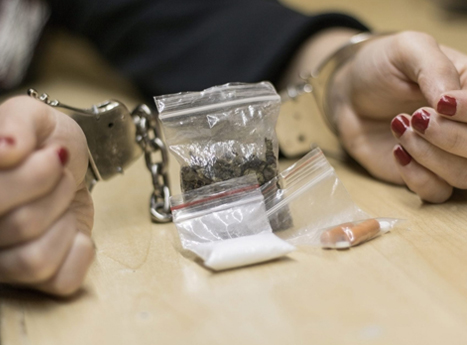|
|
Last Modified on Dec 05, 2024
Texas DWI laws are stringent, and they aim to deter and penalize impaired driving. Because of this, being charged with a DWI can significantly impact your life. At Harris & Harris Law Group, PLLC, we believe that a well-informed approach to Texas DWI laws and penalties can help our clients understand the stakes and allow us to build a strong defense tailored to their needs.
What Constitutes a DWI in Texas?
In Texas, driving while intoxicated (DWI) is defined as operating a vehicle with a blood alcohol concentration (BAC) of 0.08% or higher or while otherwise impaired by drugs or alcohol. Even if drivers have a BAC below 0.08%, they can be charged with a DWI if they show signs of impaired driving.
For drivers that are under 21, Texas has a “zero tolerance” policy. This means any detectable alcohol in the blood system can lead to charges.
Penalties for a DWI Conviction in Texas
The penalties for a DWI conviction in Texas vary depending on the specifics of each case. For example, prior offenses or any aggravating factors can lead to greater penalties. Generally, the penalties increase with each subsequent conviction, making it crucial to seek immediate legal support if you’re facing a DWI charge.
- First DWI Offense: A first-time DWI is a Class B misdemeanor. It may lead to fines of up to $2,000, jail time ranging from 3 to 180 days, and a driver’s license suspension of up to one year. In addition to court-imposed fines, individuals convicted of a DWI may face additional surcharges to retain their driver’s license. Additionally, Texas requires those convicted to complete a DWI education program as part of their sentence.
- Second DWI Offense: A second DWI offense is categorized as a Class A misdemeanor. Fines can reach up to $4,000, and jail time ranges from 30 days to one year. A second conviction typically results in a longer driver’s license suspension of up to two years.
- Third DWI Offense: A third DWI is classified as a third-degree felony, with penalties reflecting the severity of the charge. Fines may reach $10,000, and individuals could face 2 to 10 years in prison. License suspension for a third DWI offense can also last up to two years.
- Felony DWI Charges: Certain circumstances can elevate a DWI charge to a felony, even if it’s a first offense. For instance, if a driver causes an accident resulting in a serious injury or death, they may face felony charges. Examples of this include intoxication assault or intoxication manslaughter.
A DWI involving the presence of a juvenile passenger in the vehicle (someone under 15 years old) is also charged as a felony. Felony DWI penalties in Texas include prison sentences, extensive fines, and long-term consequences that can affect employment, housing, and other areas of life.
DWI License Suspension and the Role of ALR Hearings
An important aspect of Texas DWI cases is the Administrative License Revocation (ALR) process, which addresses the administrative suspension of a driver’s license after a DWI arrest. This is a separate process from the criminal court case, and drivers have only 15 days to request an ALR hearing to contest the suspension. Failure to request a hearing can result in an automatic license suspension.
Additional Consequences of a Texas DWI Conviction
A DWI conviction extends beyond fines, jail time, and license suspensions. In Texas, convicted individuals may face increased insurance premiums, restricted job opportunities, and a criminal record that can impact their future.
However, for some clients, it may be possible to pursue options like probation, community service, or alcohol education programs, which can sometimes lessen the severity of a DWI conviction’s impact.
Texas Ignition Interlock Device (IID) Requirements
For certain DWI convictions, Texas courts may require the installation of an Ignition Interlock Device (IID), a device that prevents a vehicle from starting if the driver has alcohol in their system. IIDs are often mandatory for repeat offenders, but they may also be required for first-time offenders under certain conditions.
FAQs
Q: What Is the Typical Punishment for a DWI in Texas?
A: Punishments for a DWI in Texas vary depending on the offense level and any aggravating factors. A first offense generally carries fines, possible jail time, and license suspension, while repeat offenses and aggravating factors lead to enhanced penalties. After reviewing your case file, we can better determine the punishment you might face.
Q: What Happens on Your First DWI in Texas?
A: A first DWI conviction may result in fines, potential jail time, a driver’s license suspension, and a requirement to complete a DWI education program. The exact penalties depend on the details of the case, but a strong defense can make all the difference. Reach out as soon as possible to have us review your charges.
Q: What Are the New DWI Laws in Texas?
A: DWI laws in Texas continue to evolve, with recent updates focusing on stricter penalties for repeat offenses and enhanced consequences for higher BAC levels. Changes may also include updates to IID requirements and administrative procedures. We can help you understand the new laws and apply the right defense based on your circumstances.
Q: Can You Still Drive with a DWI in Texas?
A: After a DWI arrest, your driver’s license may be suspended, but it is possible to contest the suspension at an ALR hearing. If convicted, you may be able to drive with an IID or obtain an occupational driver’s license, depending on the circumstances. Time is of the essence when contesting a suspension, so don’t delay. Contact us as soon as possible.
Legal Support When You Need It
Facing a DWI charge can be a stressful experience, but Harris & Harris Law Group, PLLC is committed to helping our clients understand their rights and options. From investigating the circumstances of an arrest to challenging field sobriety or breathalyzer tests, we examine each aspect of a DWI case to build a strong defense.
If you or a loved one is facing a DWI charge in Texas, we are ready to help defend your rights, protect your future, and become your advocate. Contact us today to schedule a consultation.




